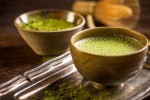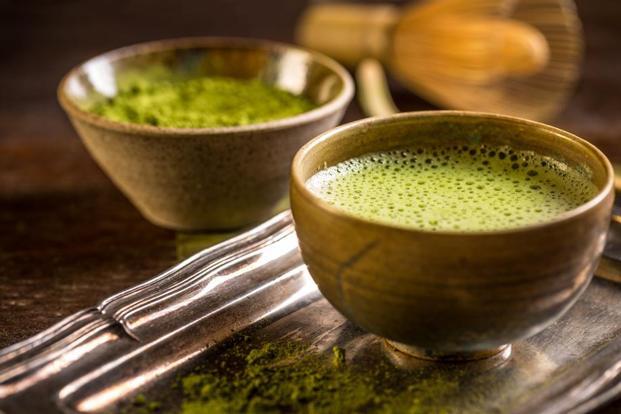The goodness of matcha tea – Matcha’s USP is that it contains lots of phytonutrients and flavonoids

The goodness of matcha tea
Matcha’s USP is that it contains lots of phytonutrients and flavonoids that help neutralize free radicals and provides protection against heart disease, hypertension and cancer
Date: July 25, 2017
Source: live mint by Kavita Devgan
The world over many java enthusiasts are ditching coffee and green tea in favour of matcha tea, a cup of which is believed to pack nutrients equivalent to 10 cups of regularly brewed green tea.
Originating from Japan, matcha is actually a powder made of stone-ground green tea leaves. When you drink matcha you ingest the entire leaf, receiving 100% of the nutrients of the leaf. It’s strong, and a deeply flavourful tea, but it has a grassy (spinach-like) taste that takes a little getting used to. The health benefits are so many, however, that it has a growing fan following across the globe. The tea is available online, and in speciality stores like Nature’s Basket. It can cost anything from Rs1,000-2,000 for 100g.

Matcha tea is considered better than green tea in all respects because of its higher antioxidant levels. Photo: iStockphoto
Health-plus
“Matcha tea is considered better than green tea in all respects because of its higher antioxidant levels, chlorophyll and other amino acids,” says Sunita Roy Chowdhary, chief dietitian, BLK Super Speciality Hospital, Delhi.
What’s more, matcha contains no sodium or fat, and like regular and green teas, has just three calories per serving. “It has protein and is an excellent source of vitamins C and A, fibre and iron. Matcha’s USP is that it contains lots of phytonutrients and flavonoids that help neutralize free radicals and provides protection against heart disease, hypertension and cancer,” says Nidhi Dhawan, head (dietetics), Saroj Super Speciality Hospital, Delhi. L-Theanine and catechins, such as Epigallocatechin gallate (EGCG), are compounds that give matcha tea many of its healing capabilities, and a study published in the Journal Of Chromatography in 2003 shows that matcha tea has three times more EGCG than regular green tea.









